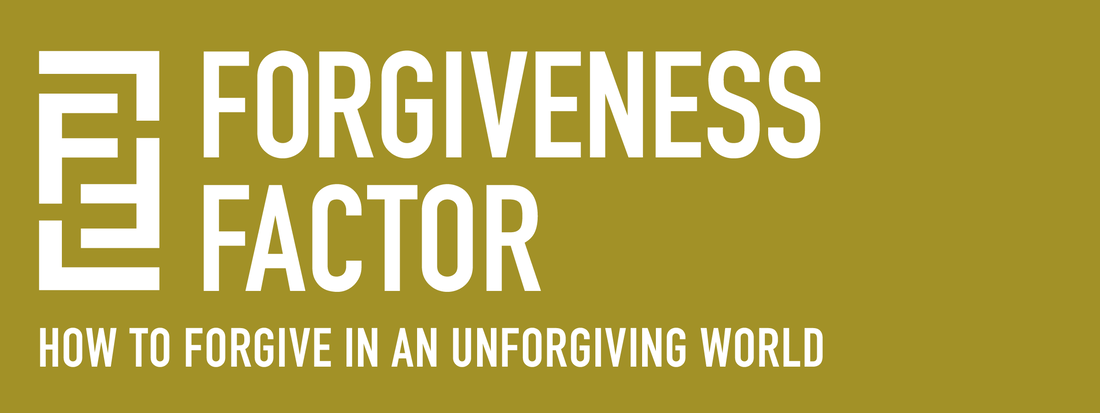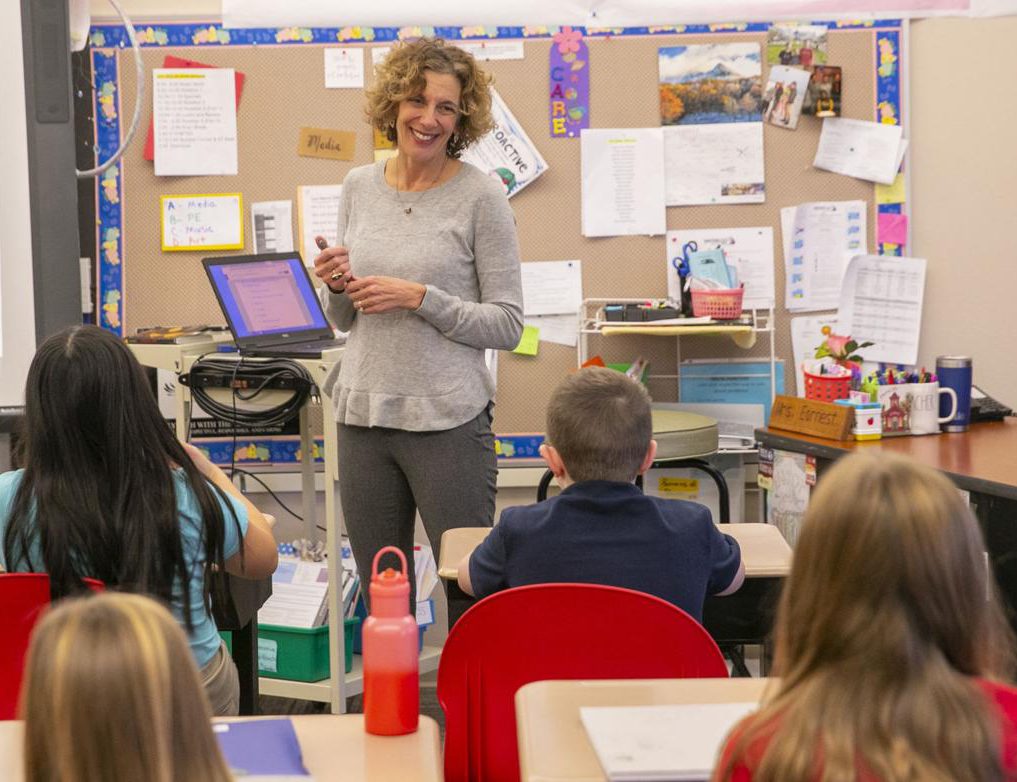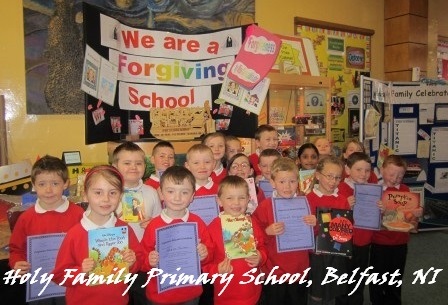Tagged: “Forgiveness Education”
Learn How to Forgive
You can add a methodical, rejuvenating process of forgiveness to your life by attending the upcoming 6-session “Freedom Through Forgiveness” course that begins September 29.
Taught by forgiveness instructor Tim Markle, the in-person course provides the tools and techniques that will enable you to gain a factual understanding of what forgiveness is, what it is not, and how to use it to methodically improve your health and well-being. The interactive sessions are based on the 20-step “Forgiveness Process Model” developed by Dr. Robert Enright, co-founder of the International Forgiveness Institute (IFI) whom Time magazine calls “the forgiveness trailblazer.”
The course is being sponsored by Stoughton Health with classes held at Stoughton Hospital from 6:30-8:00 pm on consecutive Thursday evenings from September 29 through November 10 (with no class on November 3). The facility is located in Stoughton, WI, 17-miles southeast of Madison. There is no charge for the course but enrollment is limited and pre-registration is required. Visit Freedom Through Forgiveness – Stoughton Health for more information or call Stoughton Health at 608-877-3498.
Markle is an Outreach Specialist at the University of Wisconsin-Madison Waisman Center where he works to improve the lives of children and adults with developmental disabilities and neurodegenerative diseases.  He earned a BA in Psychology from Bowling Green State University, a Masters in Counseling (MC) from John Carroll University, and a Master of Arts in Christian Studies (MACS) from Trinity Evangelical Divinity School. He is a contributing writer and speaker for the IFI and the founder of a forgiveness education organization called Forgiveness Factor.
He earned a BA in Psychology from Bowling Green State University, a Masters in Counseling (MC) from John Carroll University, and a Master of Arts in Christian Studies (MACS) from Trinity Evangelical Divinity School. He is a contributing writer and speaker for the IFI and the founder of a forgiveness education organization called Forgiveness Factor.
Finding Hope in the Midst of Trauma
Editor’s Note: This blog post was written by Dr. Suzanne Freedman, Educational Psychology Professor at the University of Northern Iowa, and is reposted with the permission of both the author and of Darlene J. Harris, creator of the website “And He Restoreth My Soul Project” where the blog originally appeared on May 1, 2022.
I automatically connect hope to my work on the topic of interpersonal forgiveness as an approach to healing from a deep, personal and unfair hurt. In this blog post, I will discuss why I believe choosing to forgive can offer individuals who have experienced the trauma of child abuse or sexual assault hope of healing and the power to move beyond their abuse.

“Forgiveness offers a way to heal, and have hope for the future, while acknowledging what happened was wrong, unfair, and extremely hurtful,” according to Dr. Suzanne Freedman, shown here during a research project with 5th grade students.
It is normal and natural to feel angry, and hopeless as a result of childhood or sexual assault trauma and one has a right to these feelings for experiencing something no individual should have to go through. If one believes that healing is impossible and/or there is nothing that can change their current attitude, feelings, and thoughts toward their abuser, it is likely they will feel despair and quite hopeless. Forgiveness offers an option for healing that allows one to hope and have faith in a better future, while also acknowledging that the abuse they experienced was unfair, deeply hurtful and unacceptable.
“I am often asked ‘Why forgive?’ and my response is always the same, ‘What’s the alternative?’
Although forgiveness cannot undo the injury or damage caused by the injury, it allows us to move forward in our lives without the negative effects of all-consuming anger, hatred, and resentment.
It offers a way to heal and have hope for the future.”
Dr. Suzanne Freedman
Hope is believing that things will get better even if they don’t feel that way now. Hope is making the decision to forgive and committing to the process, even if one does not feel the forgiveness in their heart yet. Knowing that one is strong enough to move forward in their own healing, at their own pace increases feelings of hope for the future and leads to greater emotional and physical well-being.
Hope isn’t just nice to have, at times it is essential for survival in unbearable situations. Without hope, the will to live can diminish. One may stop caring about themselves and others, and their beliefs toward achieving a good life decrease. Hope, although scary, is directly related to a person’s belief that they can cope and move beyond the abuse or trauma they have endured.
Read the rest of Dr. Freedman’s full blog at “Finding Hope in the Midst of Trauma.”
Dr. Suzanne Freedman is a Professor in the Educational Psychology Department at the University of Northern Iowa in Cedar Falls, Iowa. Her dissertation on forgiveness with incest survivors at the University of Wisconsin-Madison was a landmark study that was published in the Journal of Consulting and Clinical Psychology. She will be a speaker at the July 19-20, 2022, International Educational Conference on Agape Love and Forgiveness in Madison, WI.
Darlene J. Harris is a sought-after speaker, author of And He Restoreth My Soul (an anthology and resource guide on sexual violence), and the developer/leader of workshops and retreats for women. She writes primarily on the topics of sexual abuse and molestation because by the age of 18 she had been raped twice. “I don’t want anyone to hurt like I did,” is the mantra that drives her. Read her true-life story in her own words.
Because forgiveness is so important, do you think it is obligatory that those, who learn to forgive and develop an enthusiasm for it, should now teach others about forgiveness?
Because forgiveness is a choice, I do not think that we should put pressure on those who forgive to now go and become teachers of others. I do think that it is reasonable to let those who forgive know that helping others to now forgive is good, if this resonates with the person. In my own experience, I see people, who develop a pattern of being persistent forgivers, often do have an internal self-chosen obligation to teach and help others.
Benefits of Classroom Forgiveness Education Confirmed by New Groundbreaking Study
.
Published this month in Child Development1 (Volume 93, Issue 2, March/April 2022), the critique analyzed 20 randomized intervention studies of forgiveness education programs that were  implemented during school years 1996 through 2021. These studies spanned demographically diverse geographic areas including North America, Europe, Asia, and the Middle East.
implemented during school years 1996 through 2021. These studies spanned demographically diverse geographic areas including North America, Europe, Asia, and the Middle East.
The research, “A meta‐analysis of forgiveness education interventions’ effects on forgiveness and anger in children and adolescents,” was conducted by University of Wisconsin-Madison researchers Hannah Rapp and Jiahe Wang Xu (both graduate students in the Dept. of Educational Psychology), and Dr. Robert Enright, educational psychology professor and co-founder of the International Forgiveness Institute (IFI).
Other significant observations and findings in the just-published report include:
- Children and adolescents inexplicably experience hurt and conflict in their interpersonal relationships and can “benefit from learning more about what forgiveness is and the process of how to forgive.”
- Forgiveness education interventions “are effective regardless of whether participants have experienced severe or mild offenses or attend schools in economically disadvantaged areas.”
- Programs of both short and long durations “can lead to significant positive change in anger and forgiveness outcomes.”
- Children who forgive are more accepted by their peers.
- Positive results for students “echoed findings from previous reviews of forgiveness interventions with primarily adult populations.”
- Forgiveness education interventions are “significantly effective” whether they are facilitated by schoolteachers or by researchers.
- The forgiveness education curriculum and process developed by Dr. Enright2 and the IFI “yielded significant effects.”
Overall, the analysis presents strong evidence that “children and adolescents can benefit from forgiveness education interventions.” Read the full meta-analysis report.
_______________________________________________________________________________________________________
1 Child Development is a 92-year-old bimonthly scientific journal published by the Society for Research in Child Development (SRCD). It is a vital source of information not only for researchers and theoreticians, but for a broad range of psychiatrists and psychologists, educators, and social workers in more than 60 countries around the world.
2 The Forgiveness Education curricula developed by Dr. Enright and the IFI for pre-k through 12th grade students is based on children’s story books. Those stories teach about forgiveness and other moral virtues and equip children with the knowledge of how to forgive a specific person who offends if they choose to do so. Lessons begin by educating participants about the five concepts that underlay forgiveness: inherent worth, kindness, respect, generosity, and agape love. During the program, participants read and discuss several age and culture-appropriate stories that display forgiveness between characters such as in The Tale of Despereaux by Kate DiCamillo and in Horton Hears a Who! by Dr. Seuss.
I have to admit that I am growing disgusted with social media. The anger that is expressed there is inhumane. What do you suggest as a way to start reducing this kind of expressed anger?
If more students have forgiveness education when they are young, then this will give them a chance to more deeply see the inherent (built-in) worth of others. As we see that all people are special, unique, and irreplaceable, I truly think that deliberately hurtful verbal attacks on others will lessen.



